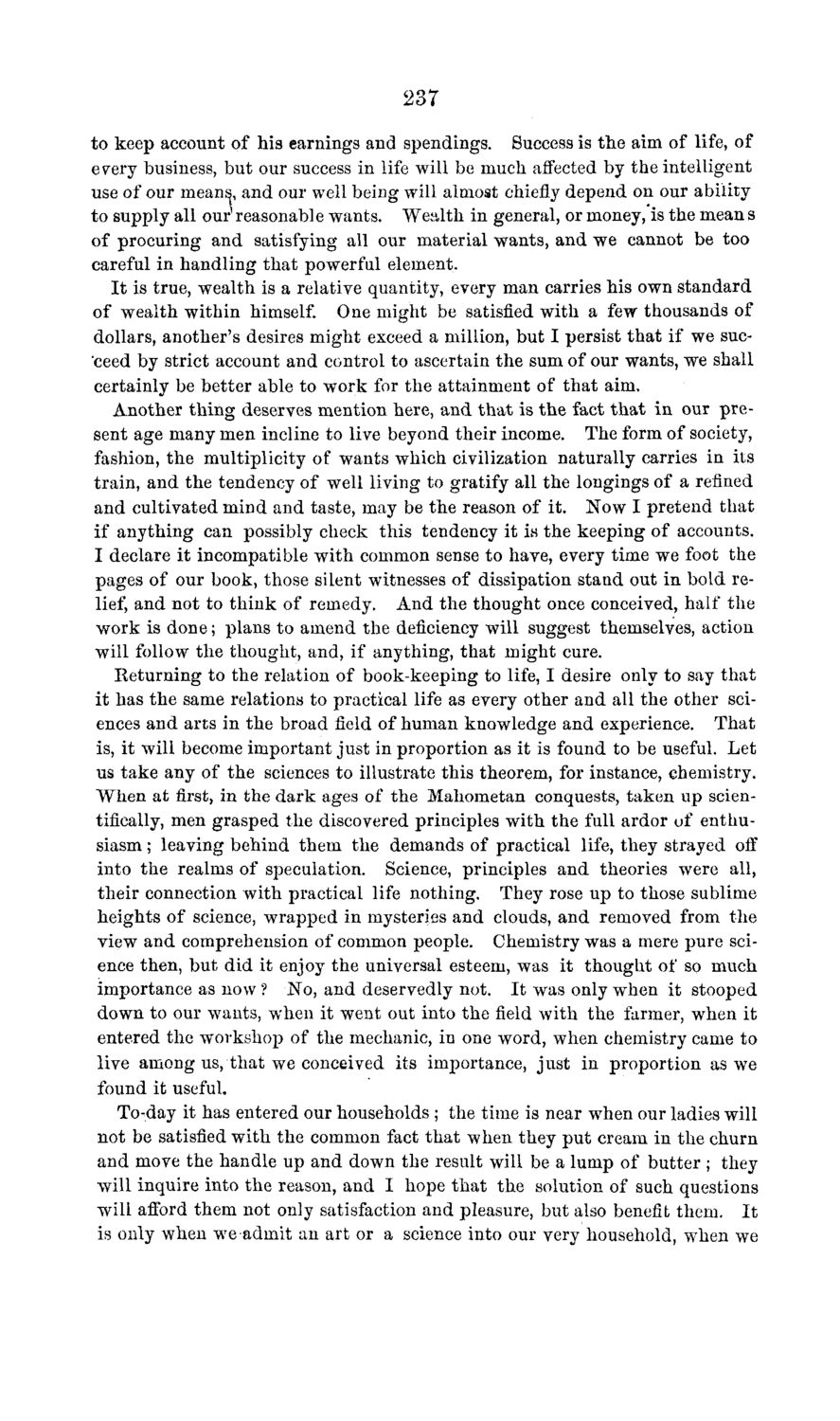| |
| |
Caption: Board of Trustees Minutes - 1869
This is a reduced-resolution page image for fast online browsing.

EXTRACTED TEXT FROM PAGE:
237 to keep account of his earnings and spendings. Success is the aim of life, of every business, but our success in life will be much affected by the intelligent use of our means, and our well being will almost chiefly depend on our ability to supply all our* reasonable wants. Wealth in general, or money, is the mean s of procuring and satisfying all our material wants, and we cannot be too careful in handling that powerful element. I t is true, wealth is a relative quantity, every man carries his own standard of wealth within himself. One might be satisfied with a few thousands of dollars, another's desires might exceed a million, but I persist that if we succeed by strict account and control to ascertain the sum of our wants, we shall certainly be better able to work for the attainment of that aim. Another thing deserves mention here, and t h a t is the fact t h a t in our present age many men incline to live beyond their income. The form of society, fashion, the multiplicity of wants which civilization naturally carries in its train, and the tendency of well living to gratify all the longings of a refined and cultivated mind and taste, may be the reason of it. Now I pretend that if anything can possibly check this tendency it is the keeping of accounts. I declare it incompatible with common sense to have, every time we foot the pages of our book, those silent witnesses of dissipation stand out in bold relief, and not to think of remedy. And the thought once conceived, half the work is done; plans to amend the deficiency will suggest themselves, action will follow the thought, and, if anything, that might cure. Returning to the relation of book-keeping to life, I desire only to say that it has the same relations to practical life as every other and all the other sciences and arts in the broad field of human knowledge and experience. That is, it will become important just in proportion as it is found to be useful. Let us take any of the sciences to illustrate this theorem, for instance, chemistry. When at first, in the d a r k ages of the Mahometan conquests, taken up scientifically, men grasped the discovered principles with the full ardor of enthusiasm ; leaving behind them the demands of practical life, they strayed off into the realms of speculation. Science, principles and theories were all, their connection with practical life nothing. They rose up to those sublime heights of science, wrapped in mysteries and clouds, and removed from the view and comprehension of common people. Chemistry was a mere pure science then, but did it enjoy the universal esteem, was it thought of so much importance as now ? No, and deservedly not. It was only when it stooped down to our wants, wThen it went out into the field with the farmer, when it entered the workshop of the mechanic, in one word, when chemistry came to live among us, that we conceived its importance, just in proportion as we found it useful. To-day it has entered our households ; the time is near when our ladies will not be satisfied with the common fact that when they put cream in the churn and move the handle up and down the result will be a lump of butter ; they will inquire into the reason, and I hope that the solution of such questions will afford them not only satisfaction and pleasure, but also benefit them. I t is only when we admit an art or a science into our very household, when we
| |